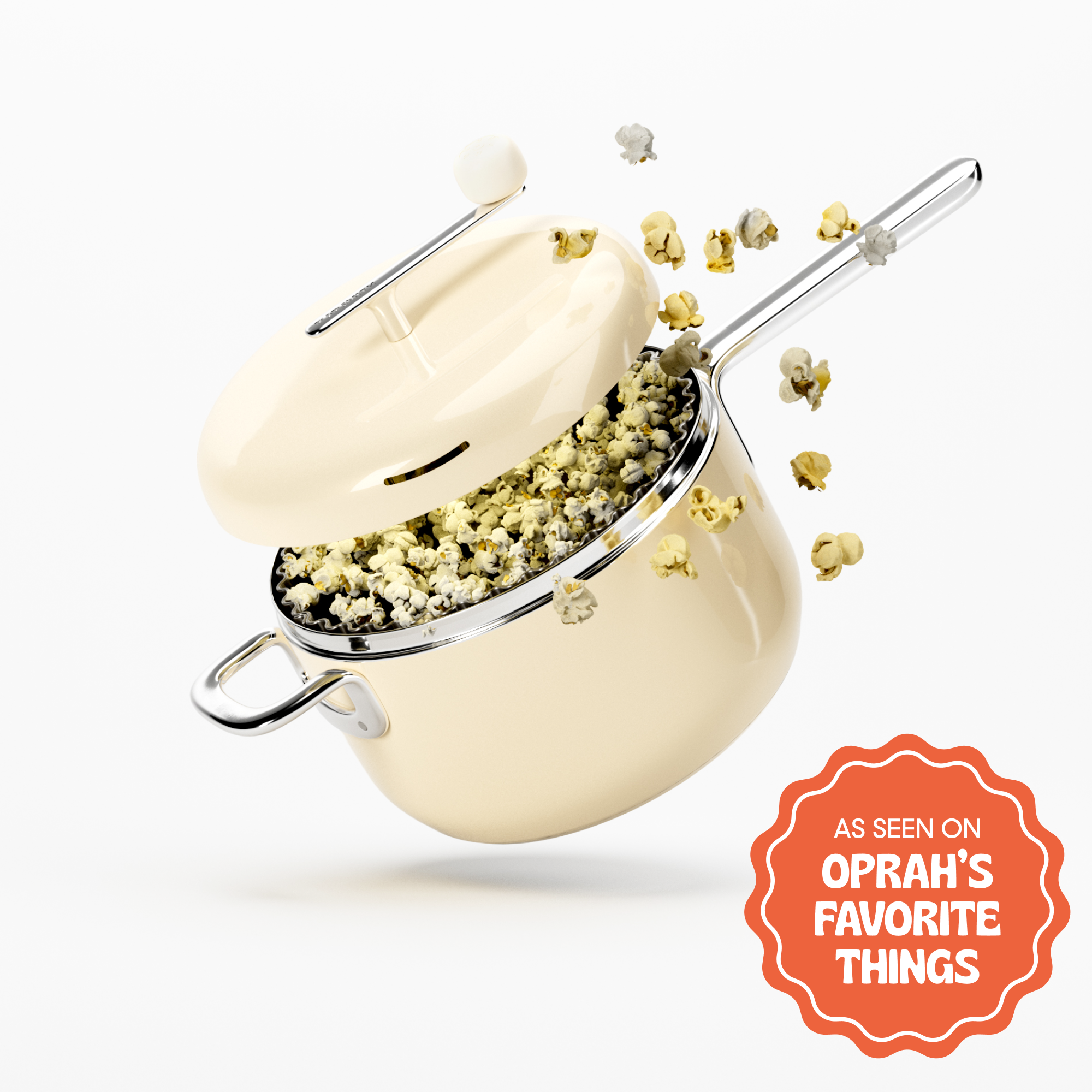Having a dedicated popcorn popper makes a huge difference when you want to enjoy a mouthwatering bowl of stovetop popcorn for movie night.
However, not all poppers are created equal. Some use stainless steel while others are made with aluminum. Each has its pros and cons, so we get that choosing between the two can be a tough decision.
Lucky for you, we’re here to help.
In this post, we’ll discuss how a stainless steel popcorn popper compares to an aluminum popcorn maker and vice versa based on the following criteria:
Heat Conductivity and Distribution
Aluminum Popcorn Machine
Aluminum does an excellent job of conducting heat — maybe even too well. With how fast it heats up, an aluminum popcorn maker may not be able to distribute heat properly and can either cause uneven popping or burning.
Stainless Steel Popcorn Popper

Stainless steel by itself isn’t the best at heat conduction since it takes a while to get hot. When combined with a multi-clad metal bottom, though, it’s a different story. Having a thin piece of aluminum sandwiched among layers of steel helps a stainless steel popcorn popper conduct heat better.
This is exactly how the Popsmith Popper prevents burnt and unpopped kernels.
Reactivity
Aluminum is considered a reactive material, meaning traces of it can leach into food and give it a metallic taste. It’s not enough to be a major cause for concern, but some people choose to avoid using aluminum cookware for this reason.
On the other hand, if you use a stainless steel popper, you won’t have to worry about your popcorn tasting weird since the material is non-reactive.
Durability
Stainless Steel Popcorn Popper

You can tell that a stainless steel popcorn popper is premium by holding it — it’s on the heavier side. This type of popper can also handle high temperatures and frequent use, plus the material is rust-resistant. It can last years with TLC, making it a worthy addition to your kitchen.
Aluminum Popcorn Popper
Aluminum is a softer metal than stainless steel. It’s more prone to dents, scratches, and warping. And since it’s especially reactive to acidic ingredients, it can develop pitting if you’re not careful.
Anodized aluminum, though, is much sturdier than the untreated kind. The anodizing process helps make it more resistant to corrosion and pitting, giving it a longer lifespan.
Cleaning

Cleaning a stainless steel popcorn popper is a breeze. You can simply wipe it down in between pops and load it into the dishwasher after. Sure, stubborn residue can remain after making recipes like caramel corn or birthday cake popcorn, but with soapy water and a non-abrasive sponge, it’ll look brand new again.
Aluminum popcorn makers are also pretty easy to clean, even though they do tend to attract oil more than stainless steel. The downside is that they aren’t dishwasher safe.
Related: How to Clean Stainless Steel Pots
So, What’s the Best Popcorn Popper Material?
If you’re looking for a budget-friendly option and don’t mind the potential drawbacks of aluminum, an aluminum popcorn popper machine might be good enough for you. Just make sure to go for the anodized variety.
But if you want something that’s built to last, a breeze to clean, and most importantly, makes consistently good popcorn, getting a stainless steel popcorn popper like the Popsmith is worth the investment. It’s also really, really easy on the eyes, and works on any stovetop — including induction (aluminum isn’t magnetic so it’s not induction compatible).
Order the Popsmith Starter Set today for the ultimate popping experience! It comes with a Popper in the color of your choice and a box each of Oh Sooo Buttery Popcorn and Classic Kettle Popcorn.





